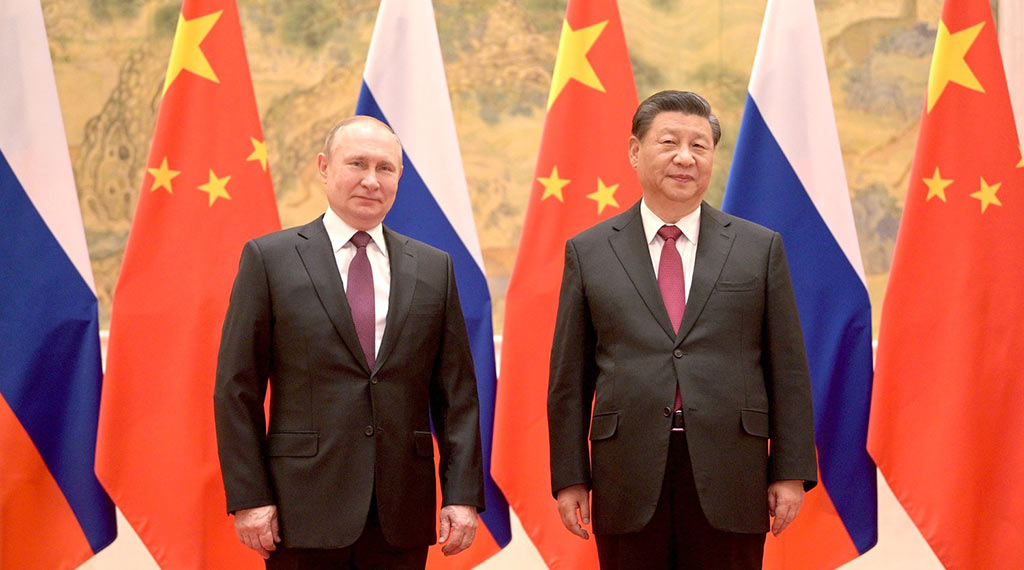Recent visits by North Korean officials to Russia, by Russian Defense Minister Sergei Shoigu to Pyongyang, and the anticipated visit of North Korean leader Kim Jong Un to Vladivostok in Russia for the Eastern Economic Forum are significant and worrisome. It’s expected that Kim and Vladimir Putin will discuss the sale of North Korean weapons to Russia in support of its war in Ukraine — likely, artillery shells and anti-tank weaponry. In return, Russia is expected to provide a curious mix of satellite technology, nuclear submarines and food aid.
No doubt, the two leaders also will discuss Russian arms transfers to North Korea in the future. Russia is also moving to hold joint naval exercises with China and North Korea in the Pacific.
The importance of all these meetings, of course, is that they could sustain Russia’s war in Ukraine. That is disastrous enough. However, the meetings take on even more significance because the secret discussions likely are focusing on greater military cooperation and mutual support in Asia.
The Kim-Putin meeting is only part of the story. There is a third party involved, one that is the dominant actor: Chinese leader Xi Jinping’s fingerprints are all over the meetings between North Korea and Russia. China seeks to support Russia’s war, and to employ both North Korea and Russia to serve its own strategic objectives.
For China, the benefits are, first, that the war has become a major crisis in Europe, which occupies the attention of most Western political leaders, the intelligence community, and Western militaries. Second, the war ensures that Western conventional arms flow to Kyiv, draining stockpiles at a rapid pace. The U.S. is a long way away from ensuring that Ukraine’s prodigious armament needs can be met while simultaneously meeting the requirements of partners like Taiwan and U.S. allies — and while keeping the U.S. arsenal full. Third, the war ensures Putin’s dependence on Xi and demonstrates to global audiences that Putin is subordinate to Xi. Russia needs China far more than the reverse. Certainly, Xi must be privately asking, “What is Russia good for?” and a part of the answer may be to demonstrate China’s superiority and to serve as a diplomatic and military factotum.
Fourth, and most importantly, the North Korea-Russia meetings very likely will involve a discussion of how North Korea could assist China and Russia in distracting the U.S. and its allies at a crucial time — that is, before China invades Taiwan or moves against Japan or the Philippines. A crisis on the Korean peninsula would further stretch the U.S. It would draw major attention from the U.S., Japan and South Korea, involving the intelligence community and military resources.
After a period of North Korean military activity — such as a mobilization at the South Korean border or a surge of missile firings toward Japan — China could mobilize its People’s Liberation Army with the potential that U.S. intelligence community warnings would be missed or dismissed.
North Korea need not go to war with South Korea. A significant crisis would divert America’s attention and thus achieve China’s strategic objectives. A diversion of this kind, when combined with the Ukraine war, means the U.S. would have to confront a Korean crisis before a potential Chinese attack on Taiwan. Xi’s goal would be to present the U.S. intelligence community with a multi-front war problem before moving its army and navy against the third front: Taiwan and/or the Philippines. An additional aspect of the South Korea-Taiwan nexus would be the destruction of semiconductor chips by Taiwanese producers in the course of a conflict with China. When coupled with reported sabotage of chip production at Samsung, the U.S. and its allies would be placed in a profound and lasting economic and security crisis.
The Biden administration must anticipate the flowering of the North Korea-China-Russia axis will complicate America’s strategic position in the immediate future. Anticipating the North Korean wild card is a challenging task, but the recent developments compel an immediate U.S. and allied response to ensure that the West is prepared.
The U.S. must make sure that when a new crisis or war comes, it is met by the full force of Japanese, South Korean, U.S. and Taiwanese capabilities. For example, creating a Pacific version of the “Five Eyes” intelligence-sharing network should be stood up immediately between the U.S., Japan, Korea, Taiwan and the Philippines.
There is much work to be done. The U.S. is not there yet, and time is short.
This file comes from the website of the President of the Russian Federation and is licensed under the Creative Commons Attribution 4.0 License.

